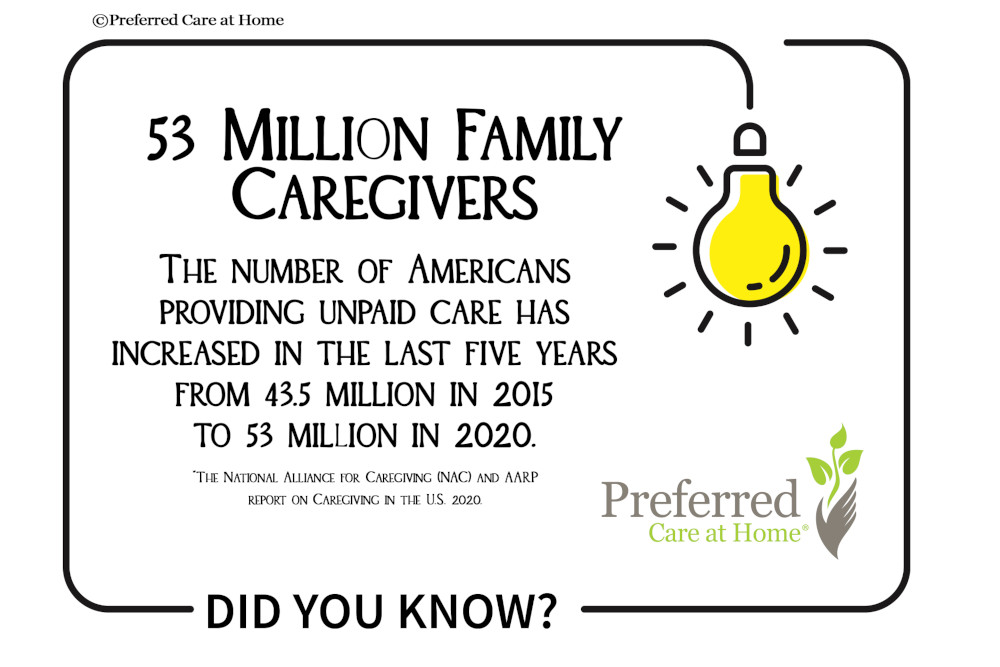Caregiver Stress Overload: Signs it’s too Much
Published September 15, 2020 by Francesca Robinson, MA in At Home Caregiving

Did you know that in the last 5 years, from 2015 to 2020, the number of Family Caregivers has increased from 43.5 million to 53 million? These numbers come from The National Alliance for Caregiving (NAC) and AARP report on caregiving in the US. This report reveals not only an increase in the number of caregivers throughout the United States but many other troubling statistical increases as well. One example of such an increase is the personal health of the caregivers. In 2015, 17% of family caregivers reported that their own health was “fair to poor”. In 2020, this percentage increased to 21%. This highlights the reality of the toll that the responsibility of a family caregiver can have on an individual.
If you are reading this, it is most likely that you are a family caregiver or you know a family caregiver. We have all witnessed first hand the high amount of stress that often accompanies the role of a family caregiver. Let’s be honest, we are all accustomed to living with a certain level of stress, especially in 2020! Yet, the stress and responsibility that fall on the shoulders of family caregivers are much greater. Family caregivers often have simply added to their workload without taking responsibility away or making adjustments. Personal jobs and responsibilities don’t cease, rather the weekly to-do list is just longer than before. The question becomes, “when is it just too much”? Is it when your own health is “fair to poor”? We all have a breaking point where the stress becomes too much.
Signs of Too Much Caregiver Stress
Here are a few signs of stress overload that signal your need to make some changes:
- Moodiness or irritability
- A feeling of being overwhelmed
- Isolation
- Anxious or racing thoughts
- Difficulty concentrating
- Poor judgment
- Upset stomach
- Chest pain, rapid heartbeat
- Difficulty sleeping
- Aches and pains
- Frequent colds
- Lack of eating or overeating
As you are reading this list, how many of the bullet points apply to you? Do you see your own stress reflected in the list? If so, it’s time to ask for help. Don’t wait for your own health to deteriorate.
It’s Time to Ask for Help
Help can come in many forms. It could start with a phone call to friends or other family members or it could be scheduling professional home care services. What is required is an honest evaluation of your own capabilities. You can’t do it all, nor should you. Asking for help is not easy. But, as a family caregiver, don’t let high amounts of stress go unchecked. Seek the support you need, when you need it. Providing quality care requires you to first care for yourself.
For more information about Preferred Care at Home and to find a home care location near you, visit our locations page.
If you have questions about senior home
care services or if you want to start care:
Related Posts

September 26, 2024
3 “Little Things” That Improve Communication Between Caregivers and Loved Ones
Francesca Robinson, MA

October 19, 2023
Preventing Osteoporosis: Essential Tips for Stronger Bones Post-Menopause
R. Bradley Robinson, M.D.

August 4, 2022
Caregiving: Give Yourself Some Credit – You Deserve It!
Laurie Salmons, RN, BSN
Helping seniors age in place, with dignity & grace.